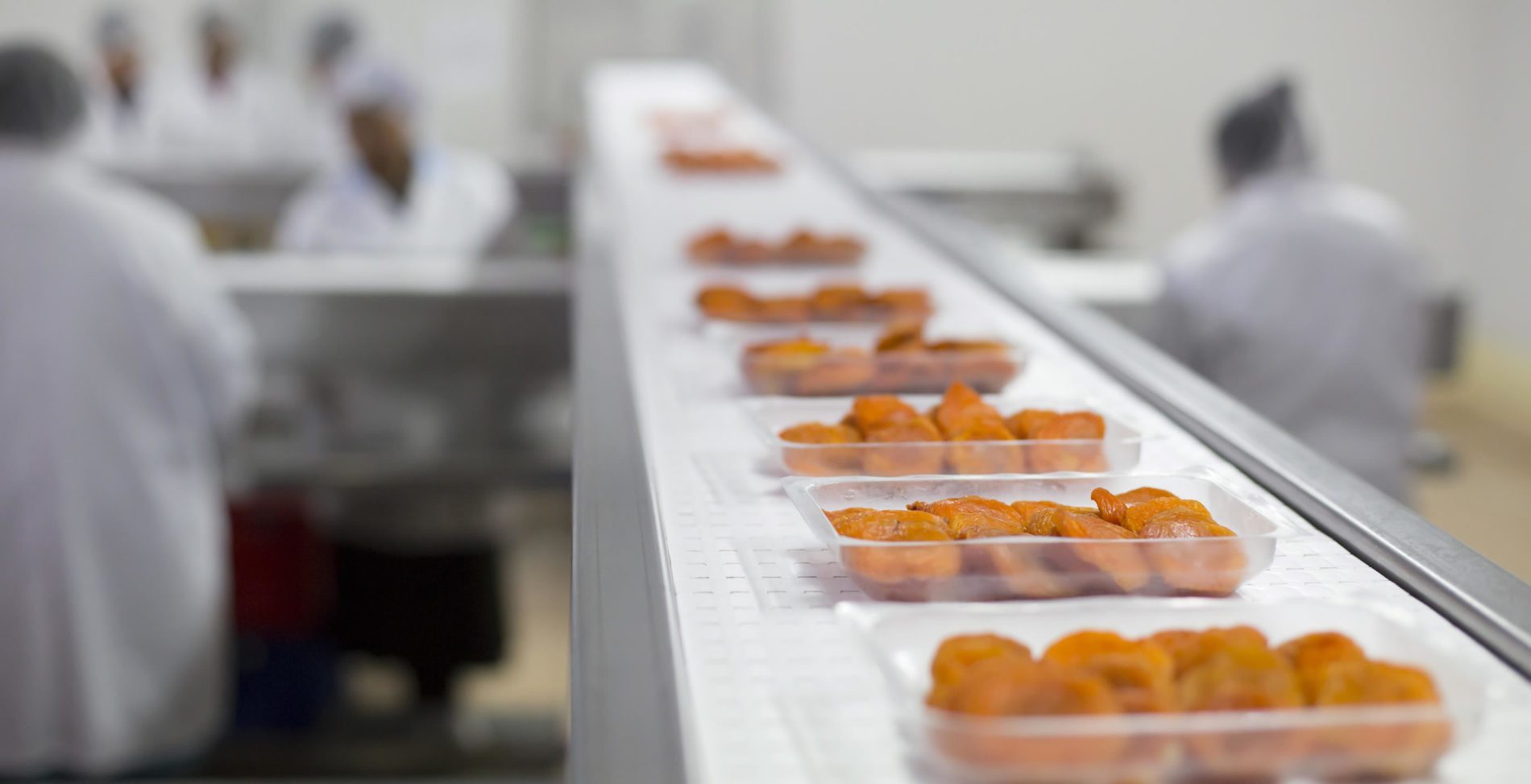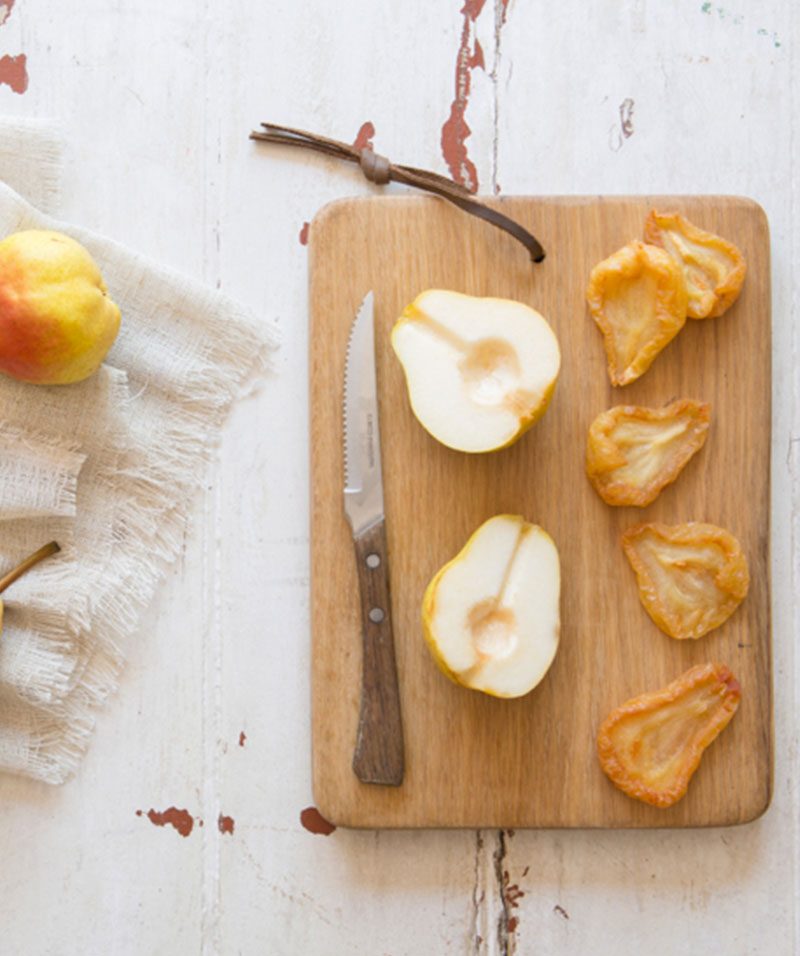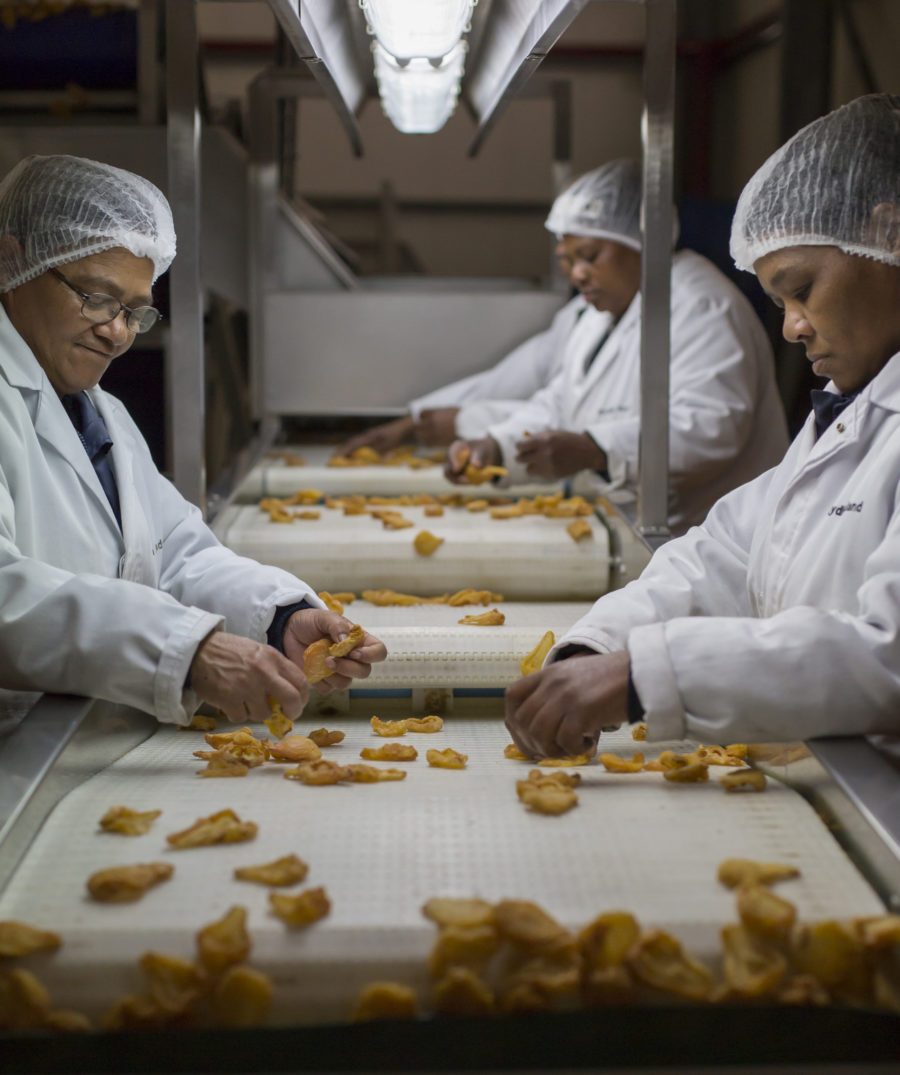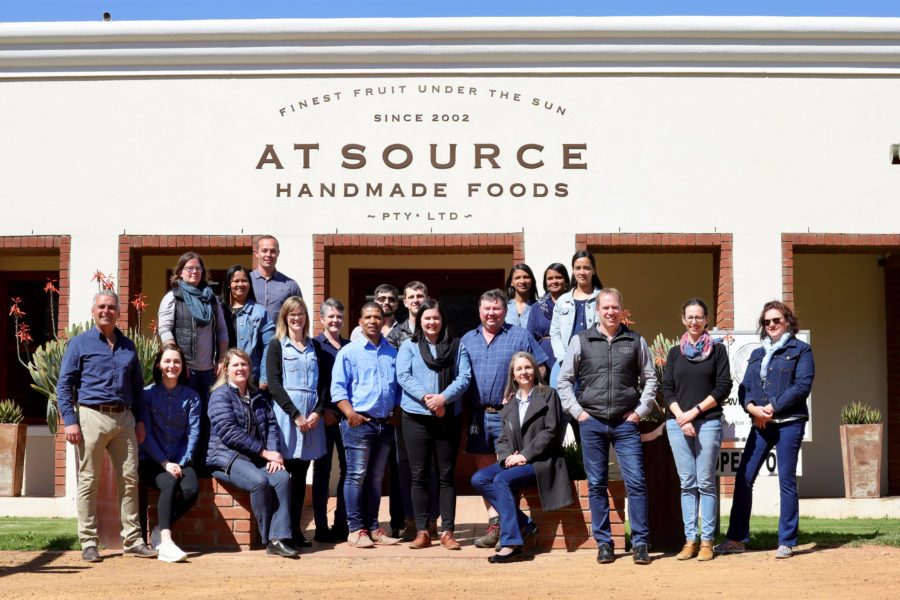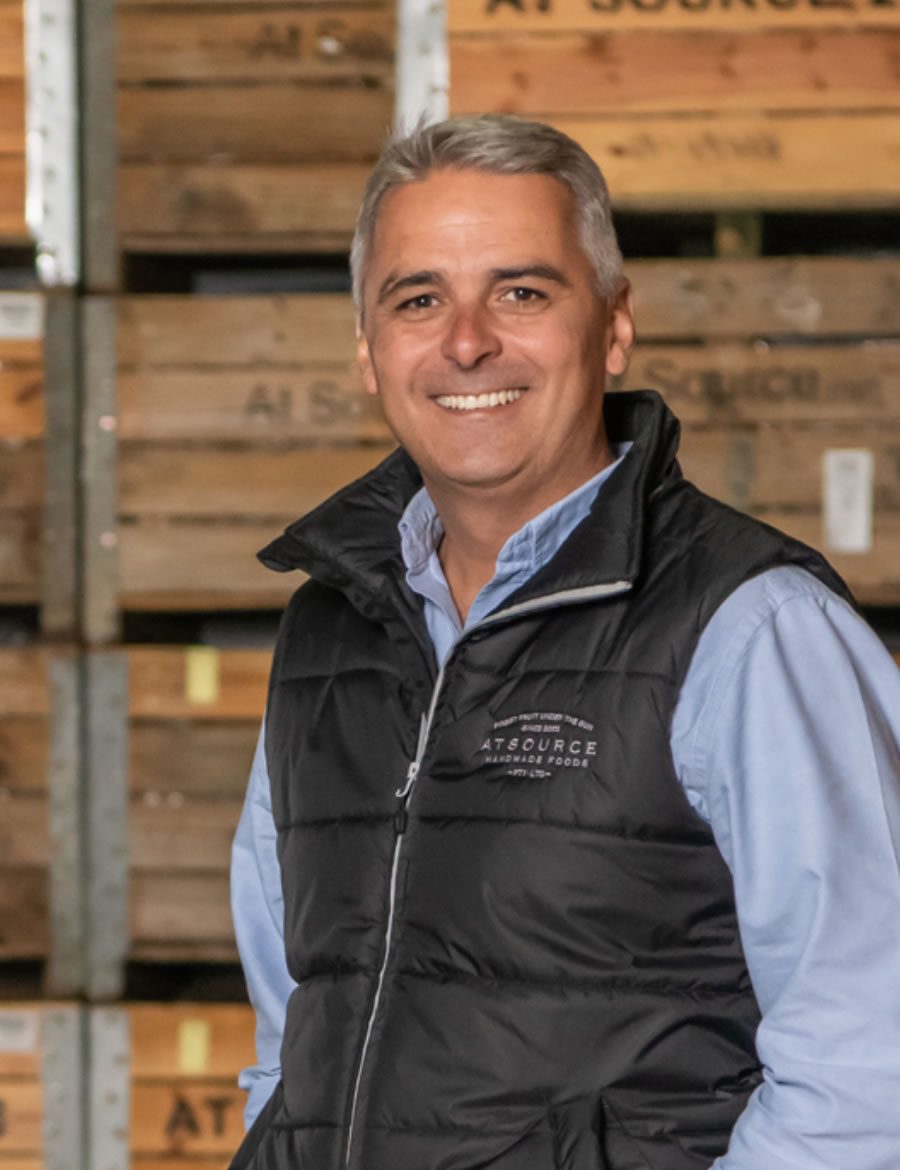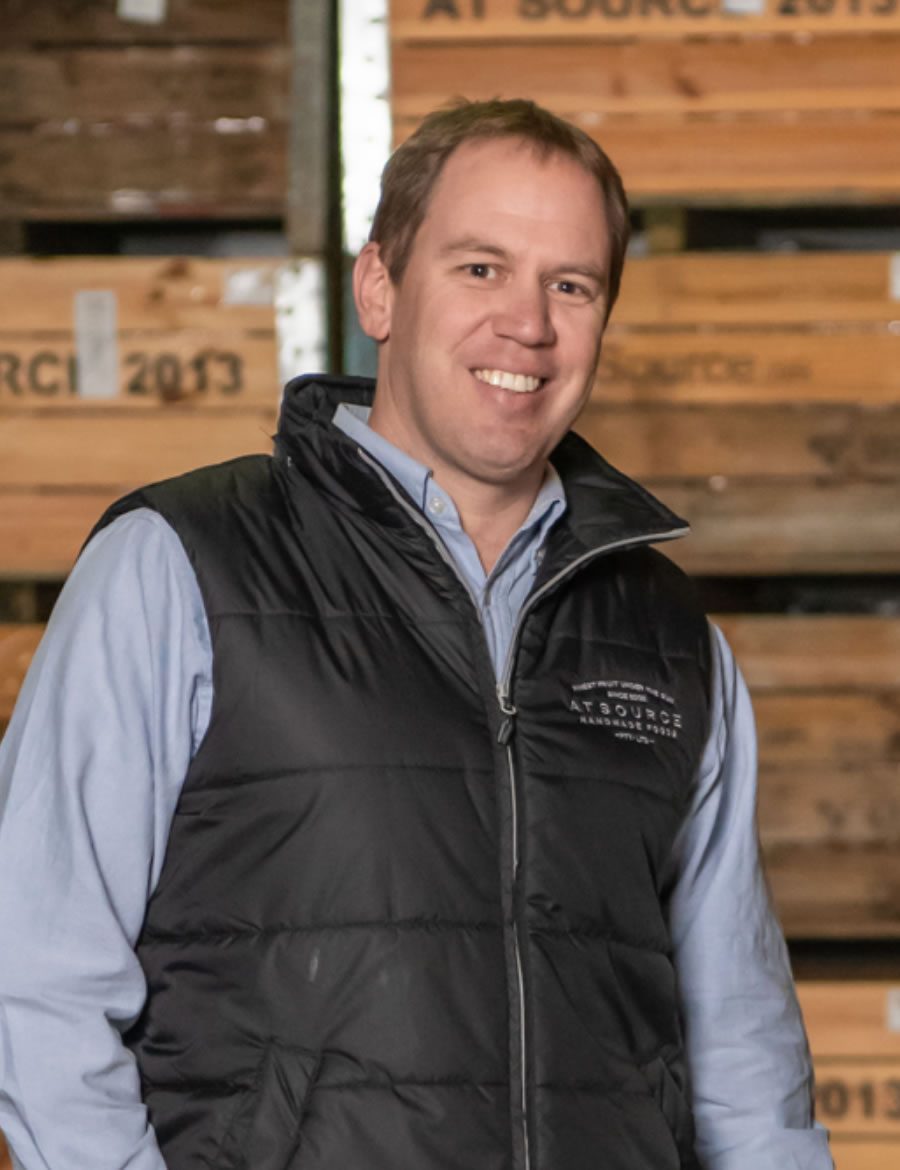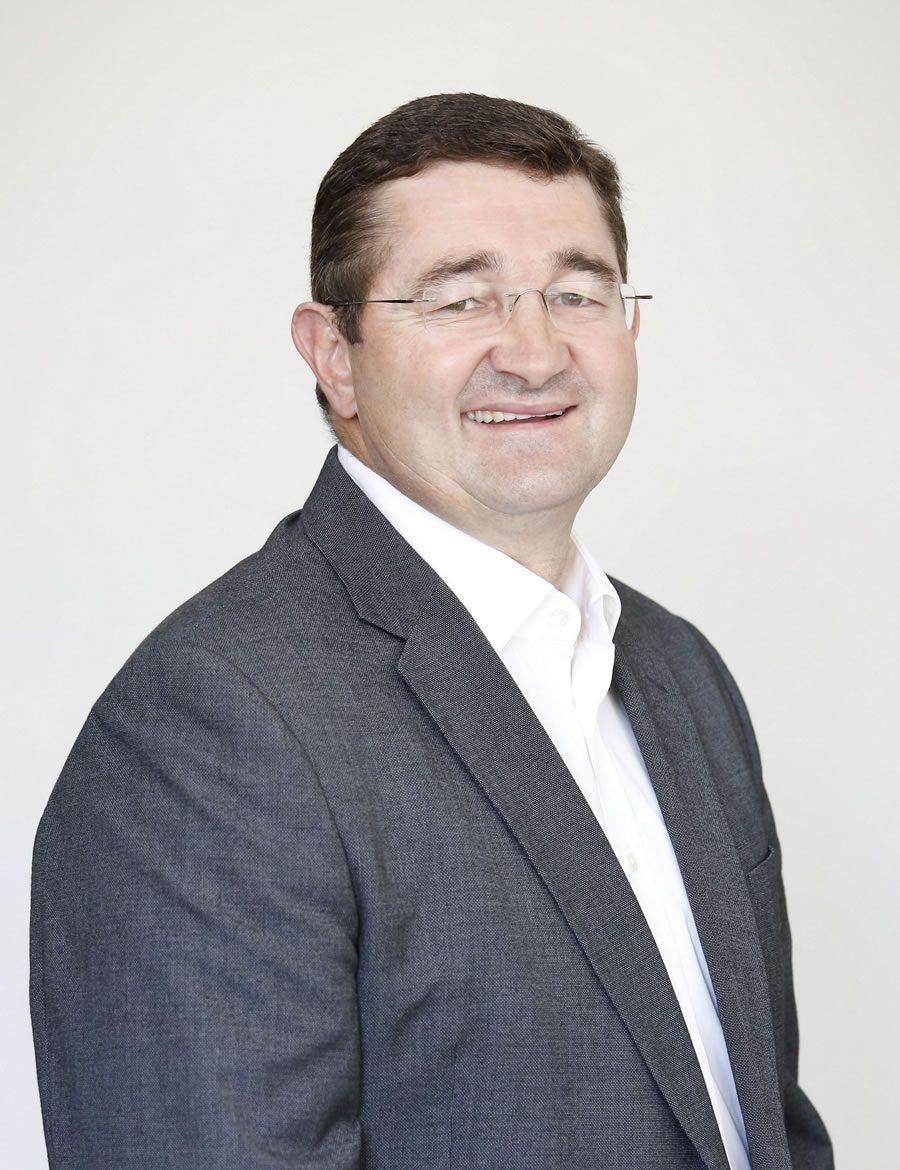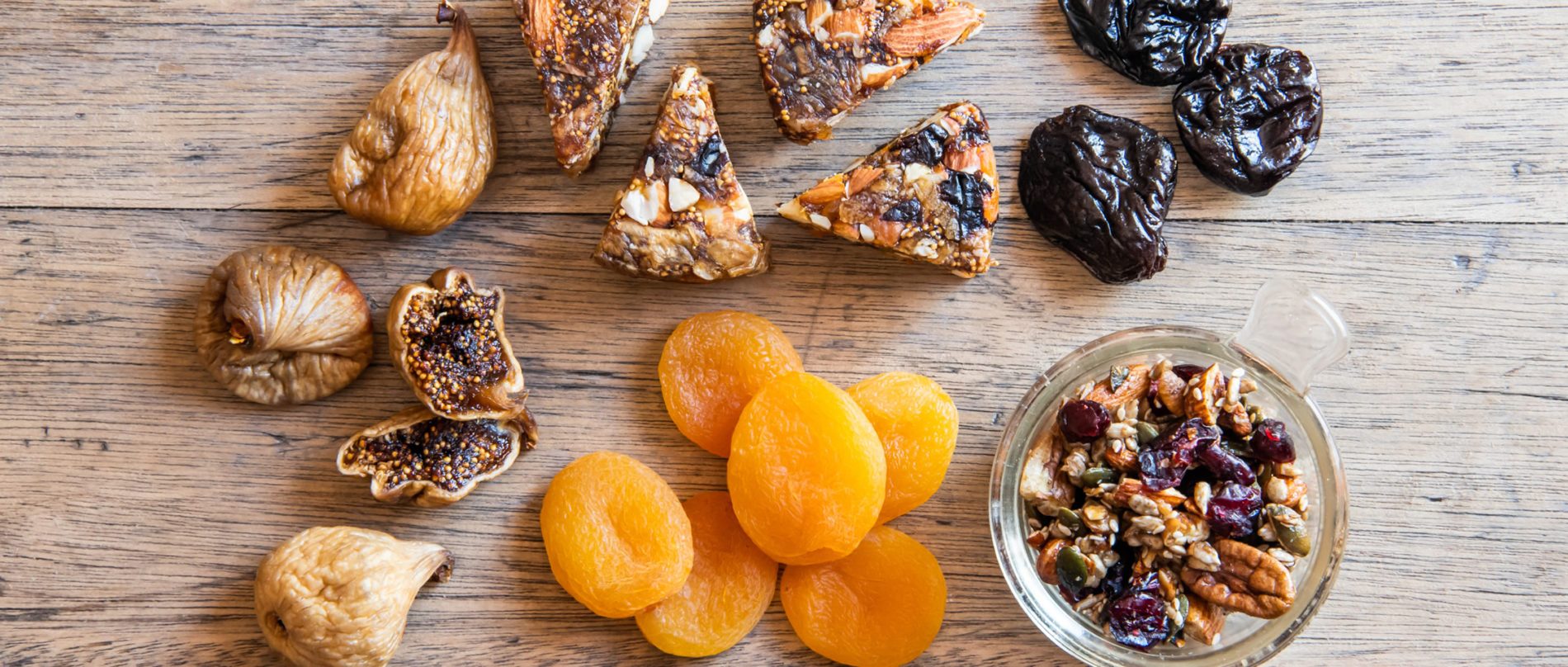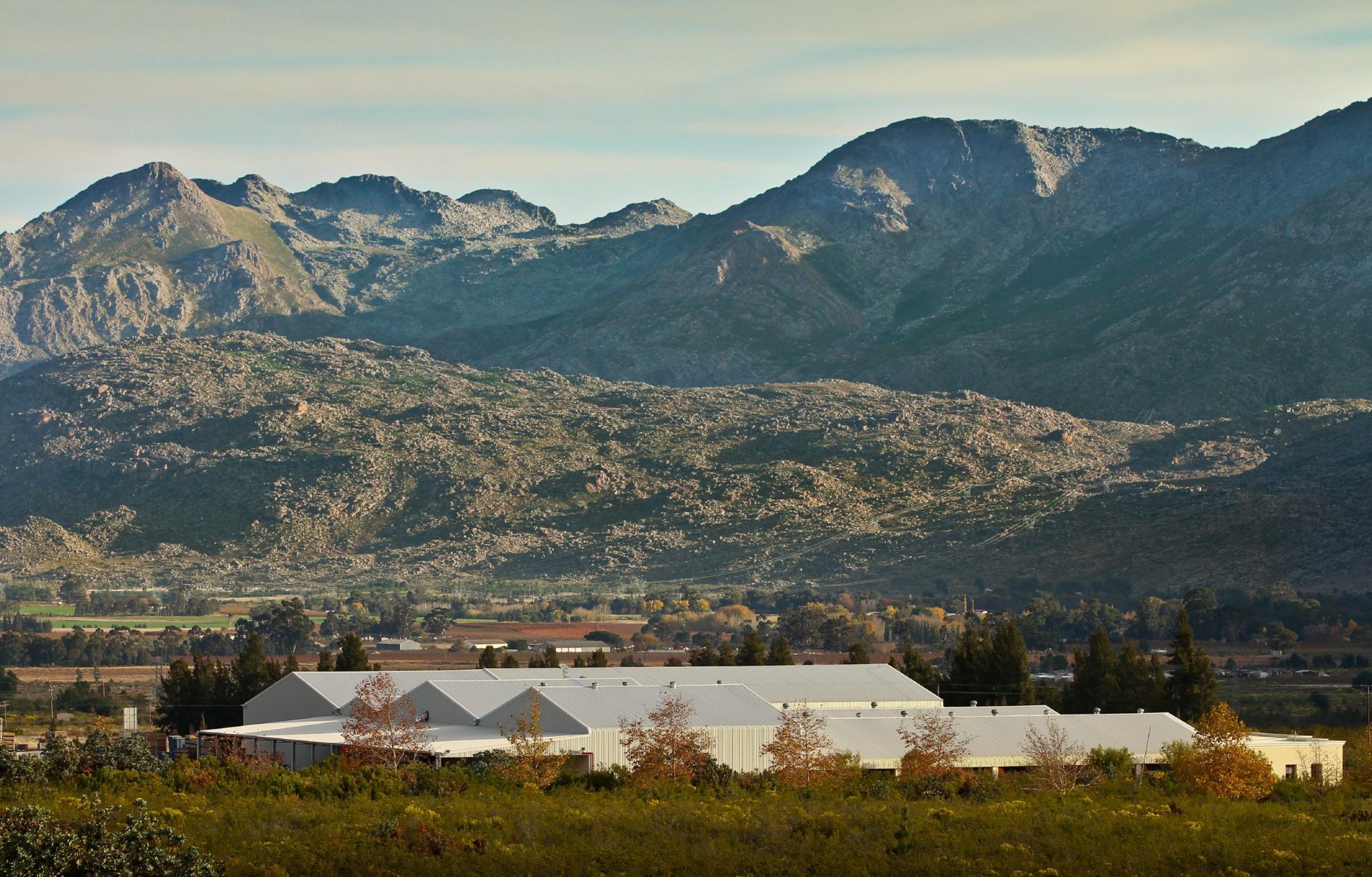
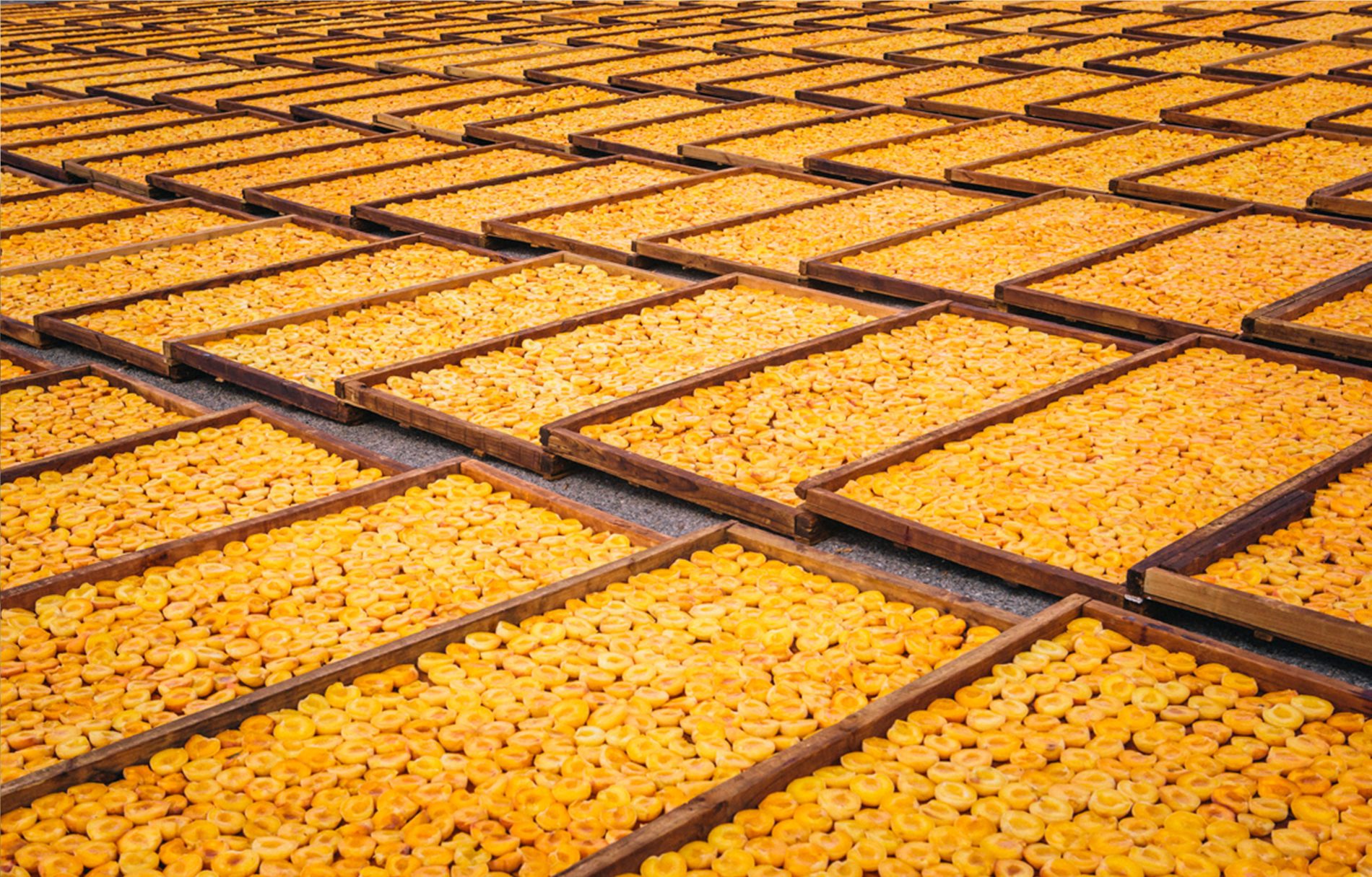
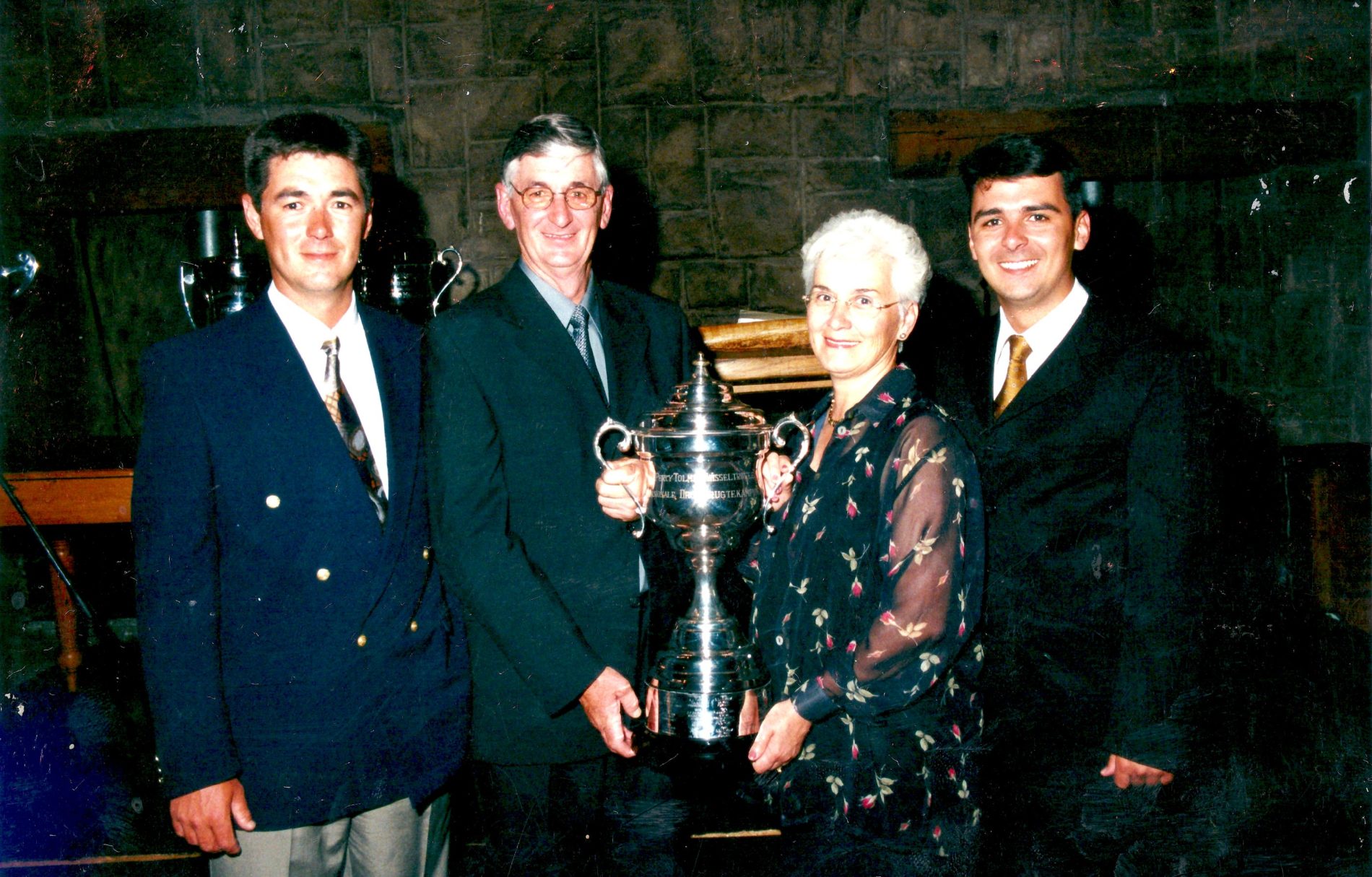
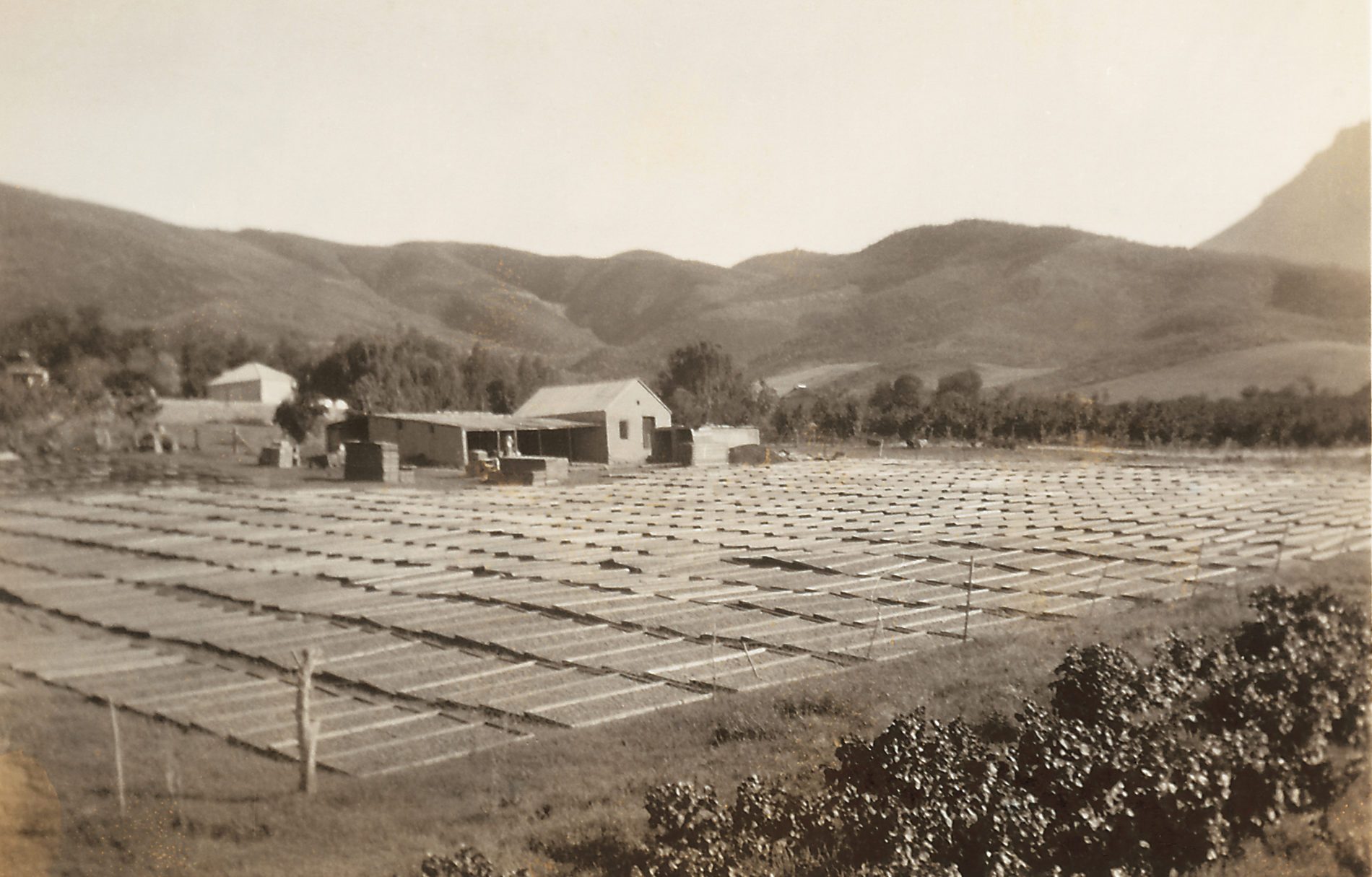
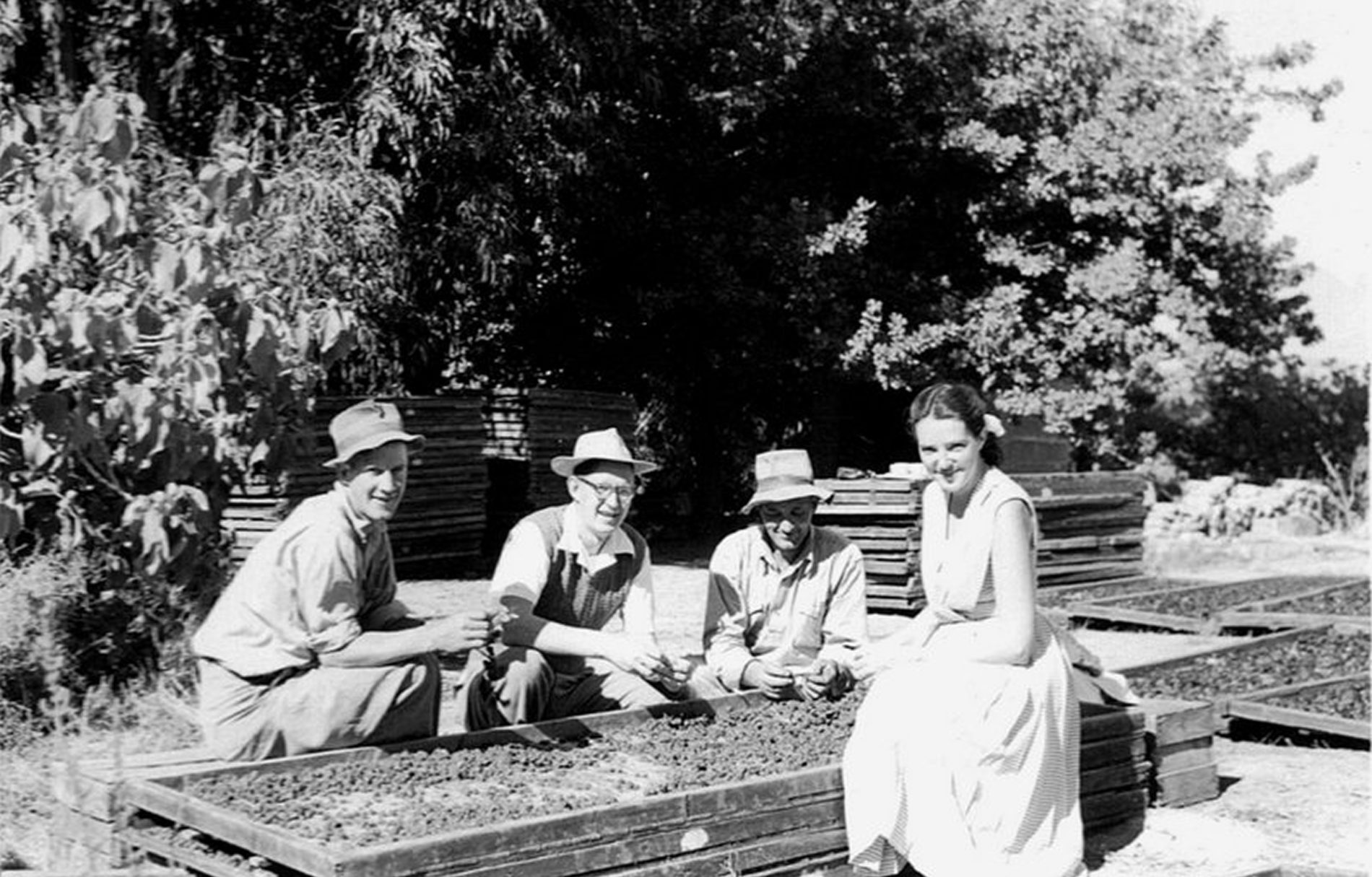
Our Story
Koele Fontein, as it was originally known, was one of the first farms that was granted on perpetual quitrent to the pioneers who settled in the Ceres valley in the early part of the nineteenth century. Daniël Jacobus Conradie bought the 2,500ha farm from the widow of the first owner in 1832.
Initially wheat and livestock farming were the norm in this secluded valley. With the advent of refrigerated transport and the construction of Michell’s Pass and a railway line to connect it to world markets, the region took off as one of the prime deciduous fruit growing areas in the country.
As is the case in the rest of the Warm Bokkeveld, pome and stone fruit are also the main crops on Koelfontein – apples and pears for fresh exports and apricots, peaches, nectarines, prunes and one specific pear cultivar, Bon Chretien, for sun-drying.
Whilst sun-drying of fruit was originally a practice to preserve fruit only for household consumption out of season, it eventually became a commercial enterprise on many farms in the region. It was Francois Conradie who during the 1980s and 90s took the Koelfontein sun-drying operation to the next level with a relentless drive for excellence – the result of a holistic approach to quality; from cultivar selection, growing and harvest practices to the ultimate sun-drying process.
In the process Francois built a proud legacy of superior quality and a reputation as the leading dried fruit producer in the country. Testament to that is the fact that he won the industry’s top award, the Percy Tolmay Trophy, an unrivalled ten times over its twenty-nine year existence and was eventually awarded the trophy permanently for his lifetime achievement and contribution to the South African dried fruit industry.
In the late nineties South African agricultural markets were deregulated and the system of single-channel marketing of dried fruit was also dismantled. Not long thereafter, Handri Conradie joined the Koelfontein family farming business and started investigating opportunities to vertically integrate the business by adding more down-stream value to the fruit that was grown on the farm.
Out of the dream to revitalise the dried fruit industry through innovation, At Source Handmade Foods was born in 2002. But to turn that into reality required more than just an idea. In search for a food scientist with product development flair, Handri found Anton Erwee who just finished a master’s degree dissertation on production of intermediate moisture dried fruit.
Anton’s first assignment was to commercialise the experimental technique for producing rehydrated dried fruit from fruit kinds like pears, peaches, nectarines and mango, something that has not been achieved anywhere in the world up to that point. The result was the At Source flagship “soft-eating dried fruit” which the company launched in Woolworths early in 2003. At about the same time Anton also created a range of homestyle fruit rolls for Woolworths to complement the iconic mango fruit rolls that Woolworths already had on shelf.
Initially while the duo focused on developing products and finding customers for the new venture, the production was outsourced to a number of operations across the Western Cape, the soft-eating dried fruit being produced on Koelfontein in a farm shed that was converted into a tiny high-care facility. However, sales took off faster than anticipated and in 2004 Handri literally mortgaged the farm to build a brand-new processing and packing facility on a greenfield site on Koelfontein.
Not having the resources or know-how to launch an own brand, the initial strategy was to develop product ranges for retailers in their own “white label” brands. At Source was responsible for creating the first dried fruit range in the Pick ‘n Pay’s Choice brand for that retailer in 2003. At the time of launching its first few products in Woolworths, the private label offering in that retailer consisted of a basic range of only about ten lines. Today At Source is the largest dried fruit supplier to Woolworths with a range of over 70 individual products.
Growth also meant that At Source started buying dried fruit from neighbouring farms and from further afield products like mango, pineapple and banana that were not grown in the Cape. The product range was also diversified by imports from other parts of the world.
In 2009 At Source launched its own branded offering in its newly created Cecilia’s Farm brand, named after Handri’s daughter. The customer base initially was independent retailers and specialty food stores in South Africa, but in 2020 the brand also launched in Costco in the USA.
In 2011 At Source landed a listing with UK retailer Marks & Spencer and further expansion of the factory and investment in technology was required to match the projected demand as well as conform to the exacting standards of that market. In 2016 the team also launched a range of soft-eating dried fruit in the Waitrose 1 brand in the UK. At Source also supplies the entire dried fruit range sold by David Jones, the iconic Australian retailer.
Fast growth also requires lots of working capital and in 2008 a private equity firm invested in At Source. They were replaced by the In2food Group in 2015. During 2020 the Conradie family acquired the stake held by In2food for At Source to regain its independence.
Looking back over the short history of the company, we are humbled and filled with an overwhelming sense of pride and gratitude for how blessed our business has been despite several setbacks. The Covid-19 pandemic resulted in the reset button being pressed with regard to many aspects of society and the world as we knew it. Consumers are rediscovering the goodness of traditional foods and what healthy and wholesome means. The At Source team will continue to endeavour to bring what we are creating here at the southern tip of Africa to a new generation of traditionalists across the world. Onward!
